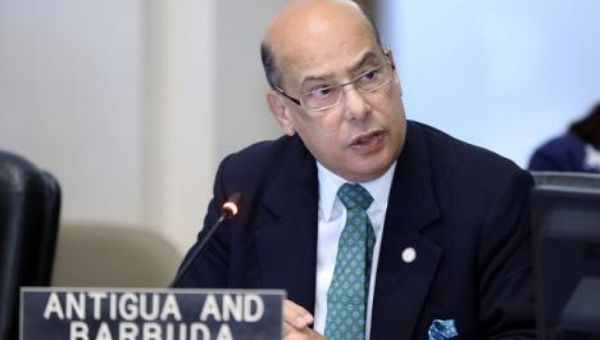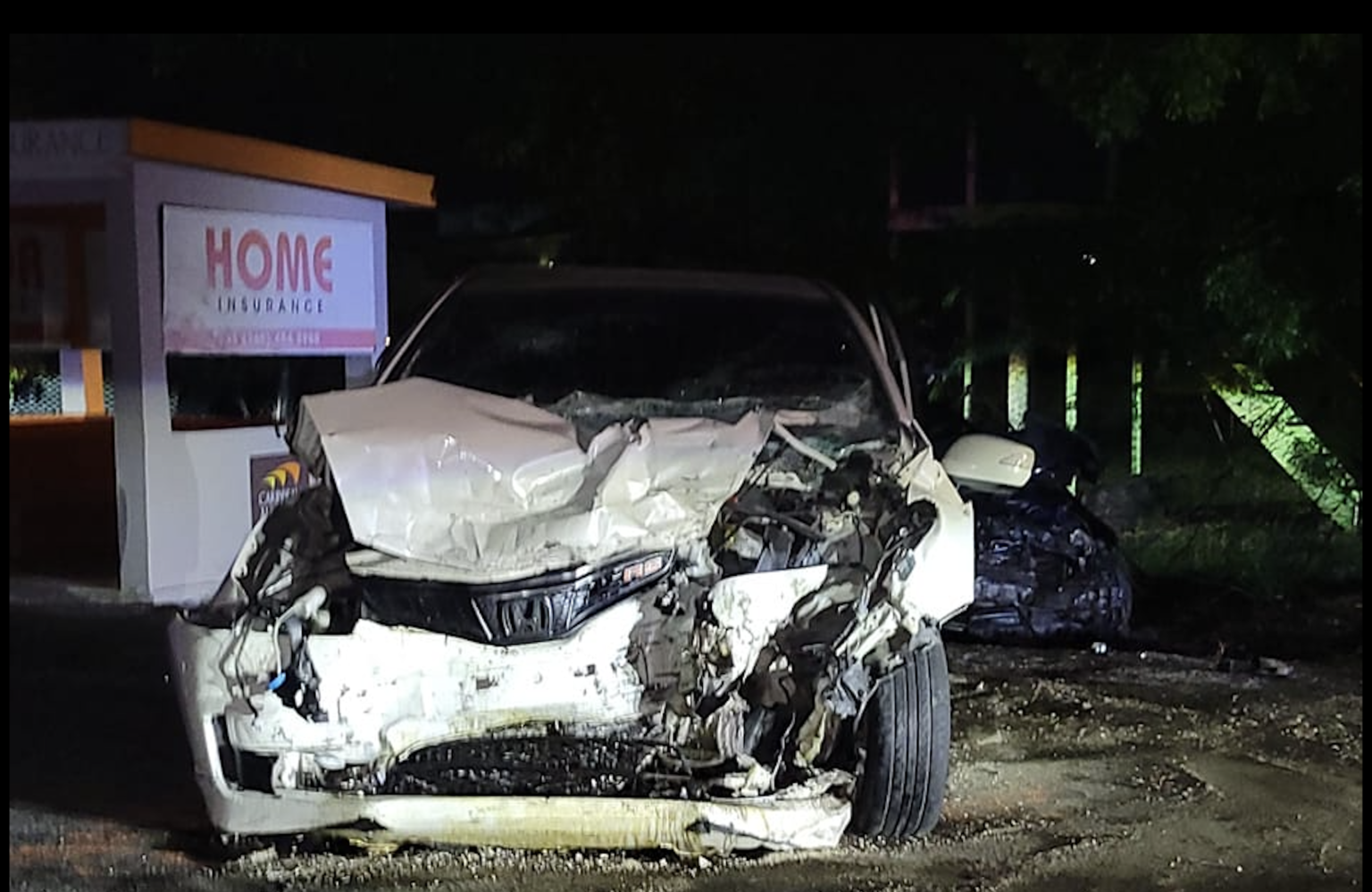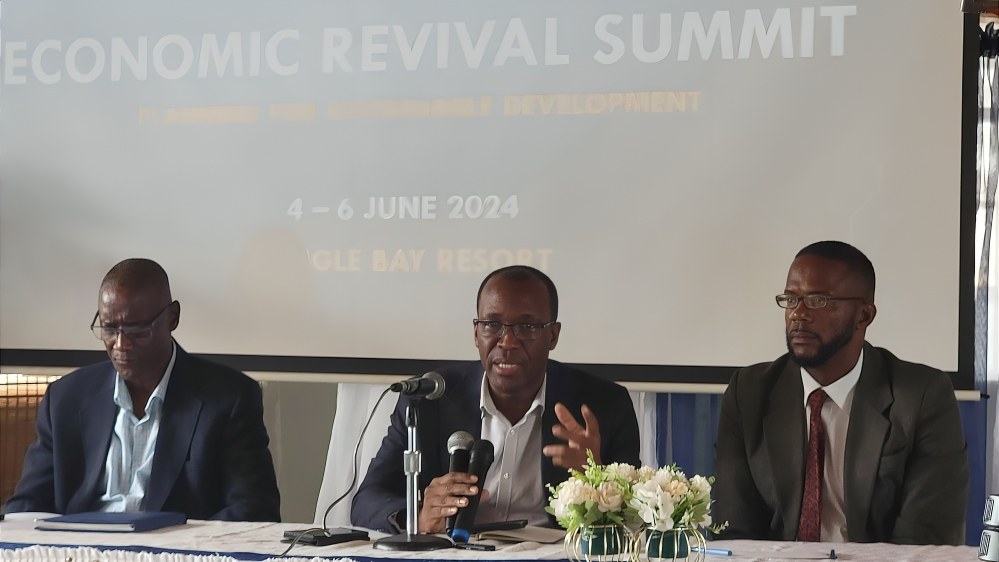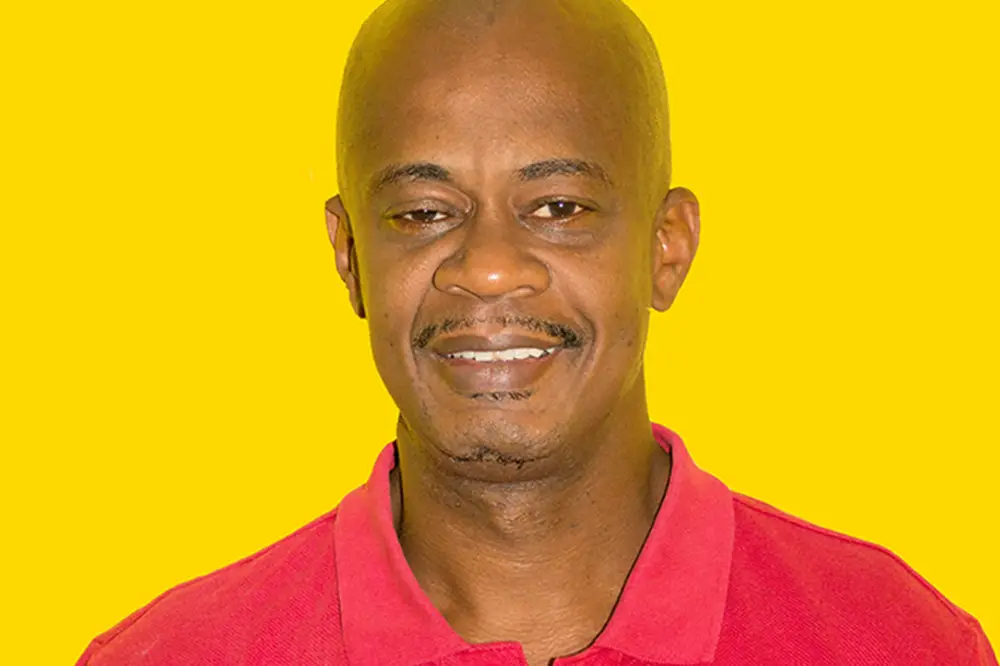By Sir Ronald Sanders
(The writer is Antigua and Barbuda’s Ambassador to the United States of America and the Organization of American States. He is also a Senior Fellow at the Institute of Commonwealth Studies, University of London and Massey College in the University of Toronto)
The pretender, Juan Guaidó, is now finally gone. The myth that he was the President of Venezuela and had the capacity to act and speak for the country, has now evaporated.
The myth of Guaidó’s presidency and authority was possible only because Donald Trump, as President of the United States, endorsed him on Jan. 23, 2019, for personal political reasons. Trump needed the exile votes in South Florida for his run for a second term as President. Several countries were “persuaded”, in defiance of customary international law, to support Trump’s position. But many of the then governments of those supporting states knew that the position they took was not rooted in international law or practice, and it was unsustainable unless the de facto government of Nicolás Maduro crumbled. Four years later, Maduro is still there.
Further, sanctions applied against the Maduro government, designed to hasten its collapse, did not succeed. The only thing that the sanctions accomplished was hurting the populace of the country, particularly the poor, creating the second largest flow of refugees in the world today.
Many countries, which followed the Trump lead in recognising Guaidó as President of Venezuela, had begun to abandon that farce. In Latin America and the Caribbean, change of governments in Mexico, Argentina, Bolivia, Chile, St Lucia, and Guyana, which had formed themselves with Canada into the “Lima Group”, departed from the patently obvious uselessness of supporting a charade. The Jamaican government, while not formally a member of the Lima Group, continued its pro- Guaidó position.
The purpose of the “Lima Group” was to try to give international legitimacy to Juan Guaidó, particularly in hemispheric organisations, such as the Organization of American States (OAS) and the Inter-American Development Bank, where, along with the U.S. government, they used their slender majority to impose Guaidó’s nominees as the representatives of Venezuela.
Several Caribbean governments resisted this imposition, which was also a violation of the rules of the OAS and of customary international law. Among the Caribbean countries, which steadfastly adopted this principled stance from the outset, were Antigua and Barbuda, Dominica, St. Vincent and the Grenadines, and Trinidad and Tobago. These countries, recorded in the resolutions of the OAS, that they did not accept the violation of the OAS rules and would not be bound by any decision, which required the vote of Guaidó’s representative to pass.
On Oct. 6, 2022 – just three months ago – at the General Conference of the OAS in Peru, as Ambassador of Antigua and Barbuda, I introduced a resolution to overturn the decision to seat Guaidó’s representative at the OAS. The resolution received majority support of 19 of the supposedly 35 member states (neither Cuba nor Venezuela are members despite the unenforceable 1948 rules of the organisation, really making membership 33). Only four countries voted against, namely Canada, Guatemala, Paraguay and the U.S.
However, even though Guaidó’s nominee was seated at a General Conference in 2019 by 19 votes, which, wrongly, included the nominee voting for himself, the archaic rules of the OAS required a favourable vote of 22 to pass. Abstention by three CARICOM countries deprived the OAS of correcting the blemish of illegality and immorality of seating a pretender as a legitimate government. How any government could expect to maintain the credibility of the OAS in such circumstances is deeply troubling.
As matters turned out, it was the Venezuelan opposition parties that put an end to this international conspiracy to accord Guaidó the status of President. The opposition shadow “National Assembly” voted on Friday, Dec. 30, to remove Juan Guaidó. Guaidó’s own party did not oppose removing him; they wanted to replace him.
But the three major opposition groups recognised that, realistically, a farce was never sustainable in the beginning, and continuing it was self-destructive. Instead, they have created a five-member commission to manage Venezuela’s foreign assets, especially the U.S. based, CITGO, a subsidiary of the state-owned oil company, PDVSA. However, this scheme is entirely dependent on the support of foreign governments, including the U.S. and the United Kingdom.
Almost $2 billion worth of Venezuela’s gold reserves are held in the Bank of England. A London High Court had ruled last August that Guaidó should control these assets, but the Maduro government appealed the decision. Now that Guaidó has been deposed by the Opposition parties and the farce of his Presidency has evaporated, the Court will be constrained to review its ruling.Meanwhile, Gustave Tarre, Guaidó’s nominee as representative to the OAS, has announced the termination of his own appointment in the wake of Guaidó’s removal.
Since it was Guaidó who, himself, made this appointment as “President of the National Assembly”, and he has been removed by the same opposition National Assembly, the entire scheme at the OAS now falls away. Unless, of course, 19 governments are brazen enough to try to once again bulldoze and bully the other members of the Organization to accept another mockery of customary international law and practice.
It is most unlikely that 19 member states will support such an initiative. The vote at the OAS General Conference on Oct. 6, 2022 was self-evident. Only four countries voted against the Resolution by Antigua and Barbuda, whose objective was to restore respect for law and rules at the OAS by removing Guaidó’s representative.
Spain has shown the way to all those who initially recognized Guaidó. On Dec. 28, 2022, Spain formally appointed an Ambassador to Venezuela, dealing directly with the Maduro administration.
The reality is that on April 27, 2017, the Government of Venezuela denounced the OAS Charter and announced its withdrawal from membership of the Organization with effect two years later on April 27, 2019, as required by the Charter. Since then, a pretender has wrongly occupied the Venezuelan seat, not paying any part of the $10 million, ascribed as dues payable by Venezuela over the last four years.
The consequence was false accounting that has contributed to the inability of the Organisation to fulfil its mandate to the peoples of the member states.
This additional fallacy must also now end.
Make a donation to help support ABN, via PayPal: [email protected]. Follow Antigua Breaking News on Twitter @ABNAntigua and Instgram @AntiguaBreakingNews and on Facebook. Send us a message on WhatsApp at 1-868-704-9864 or email us at [email protected]
CLICK HERE TO JOIN OUR WHATSAPP GROUP FOR NEWS UPDATES.
CLICK HERE TO JOIN OUR WHATSAPP GROUP FOR NEWS UPDATES.
CLICK HERE TO JOIN OUR WHATSAPP GROUP FOR NEWS UPDATES.
CLICK HERE TO JOIN OUR WHATSAPP GROUP FOR NEWS UPDATES.
CLICK HERE TO JOIN OUR WHATSAPP GROUP FOR NEWS UPDATES.
CLICK HERE TO JOIN OUR WHATSAPP GROUP FOR NEWS UPDATES.
CLICK HERE TO JOIN OUR WHATSAPP GROUP FOR NEWS UPDATES.
CLICK HERE TO JOIN OUR WHATSAPP GROUP FOR NEWS UPDATES.



















